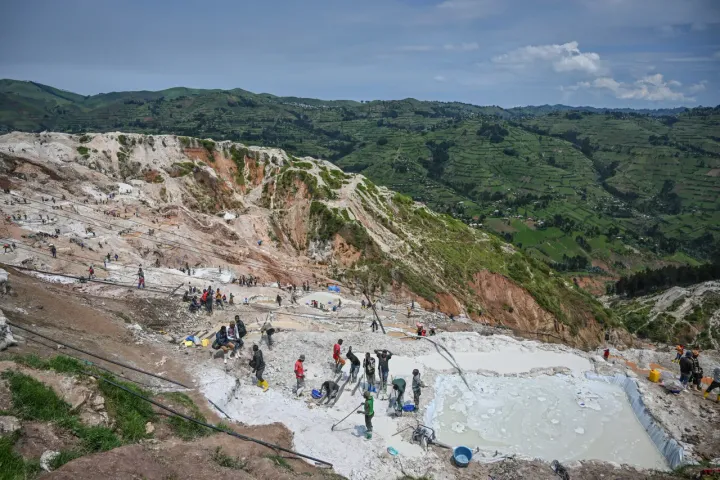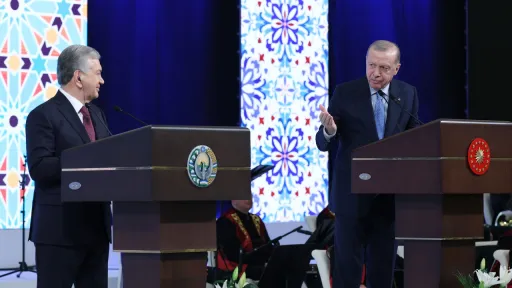Nigeria's biotechnology institutions are courting religious leaders in their campaign to win public acceptance for genetically modified organisms (GMOs) amid a raging debate over the benefits and consequences of genetic farming practices and consumption of such produce.
The country's National Biotechnology Research and Development Agency hosted a sensitisation workshop on GMOs last July, marking the latest effort to shape public opinion on genetic engineering.
Prof Abdullahi Mustapha, the agency's director general, told delegates that genetically modified food poses no threat to humans, animals or the environment. He highlighted drought resistance, enhanced yields and food security as the primary benefits of switching to what he said was a more productive and prudent method of farming.
Mustapha said Nigerian companies were producing these seeds, while stressing the importance of embracing science and technology for food security and climate change mitigation.
The agency has since invited religious and traditional leaders to help "change people's opinions" on the contentious issue.
The GMO question extends far beyond medical concerns, touching on political economy, religion and the complex bureaucracy of international trade worldwide.
Core philosophy
GMOs refer to organisms that have been altered at the genetic level, whether in animals or in the genes of seeds and fruits. The potential of genetic engineering in addressing food insecurity makes it a heavily invested sector, especially in seed improvement research.
"Genetic modification allows scientists to introduce targeted traits into crops," Abdulrazak Ibrahim, a biochemist at Ahmadu Bello University in Zaria, tells TRT Afrika. "These traits could be pest resistance, drought tolerance or enhanced nutritional content."
Ibrahim, who holds a PhD in molecular biology from Brazil's Universidade de Brasília, argues that GM technology has transformed the production of export crops such as soybean, cotton and canola globally.
"GMO adoption could sustain economic competitiveness of developing countries in the global markets," he says.
The benefits are particularly significant in tropical regions, where pest infestation, diseases, recurring drought and unpredictable rainfall are known to affect farming productivity.
Experts say that seeds with infused traits improve yield stability, reduce pesticide use and strengthen productivity.
For staple crops grown across the tropics, GM technology is a game-changer for food security.
According to Ibrahim, the technology works most effectively when integrated with broader systems, including extension services, seed delivery, markets and farmer training. The idea is to enable farmers to capture the full value of their crops.
While GMO adoption remains a choice, the science indicates that genetically modified crops can contribute to food security and export competitiveness when supported by strong regulatory frameworks and institutional capacity.
Nigeria's journey
The first controlled trial of GMO farming in Nigeria's rural belt took place in 2015. Since then, commercial GMO farming has expanded to Ghana, Burkina Faso and Sudan alongside Nigeria. South Africa began farming genetically modified varieties of corn, soybean and cotton in 2000.
Nigeria has already approved genetically modified cowpea, drought-resistant corn and Bt (Bacillus thuringiensis) cotton.
But experts like Ibrahim can't emphasise enough that just choosing GMO varieties won't deliver results. Robust regulation, production strategies based on sound economic rationale and ethical practices are just as crucial to the success of GMO farming on a mass scale, they say.
Conducting rigorous cost-benefit analyses typically leads to improved yields, reduces pesticide use and increases farm incomes. This also ensures that countries are mandated to assess risks and safeguards before large-scale adoption of GMO farming.
Overall, the prospects are determined more by readiness than timing. The textbook strategy is to have a strong regulatory architecture, institutional capacity and farmer-support systems to safeguard public trust without compromising on productivity.
In Nigeria, the consensus among experts is that the country is relatively prepared to scale GMO farming. The National Biotechnology Development Agency and National Biosafety Management Agency have already helped position Nigeria at the frontier of biotechnology governance and adoption within the continent.
Farmer concerns
A World Health Organisation (WHO) study showed that countries restricting GMOs in the food sector often cite doubts about health benefits for consumers.
"Concerns about affordability, seed access and potential long-term effects reflect trust gaps in technology adoption rather than GMOs alone," says Ibrahim. "Economic studies show acceptance improves when farmers engage directly through field demonstrations, participatory trials and transparent cost-benefit data."
For instance, adoption of Bt cotton in India rose significantly once farmers with small land holdings received better yields with less pesticide use. Brazilian soybean farmers embraced GM technology when they saw export competitiveness improve alongside reduced production costs.

Conversely, in Burkina Faso, farmers' concerns about fibre quality led to the suspension of Bt cotton, demonstrating how farmer perceptions and market requirements can decisively shape outcomes.
"The most convincing case for GMO comes from open, science-based dialogue, backed by clear evidence and respect for community values," argues Ibrahim. "When farmers and consumers see economic rationale (improved yields, reduced costs) and safeguards in place, conspiracy theories make way for informed decision-making."























